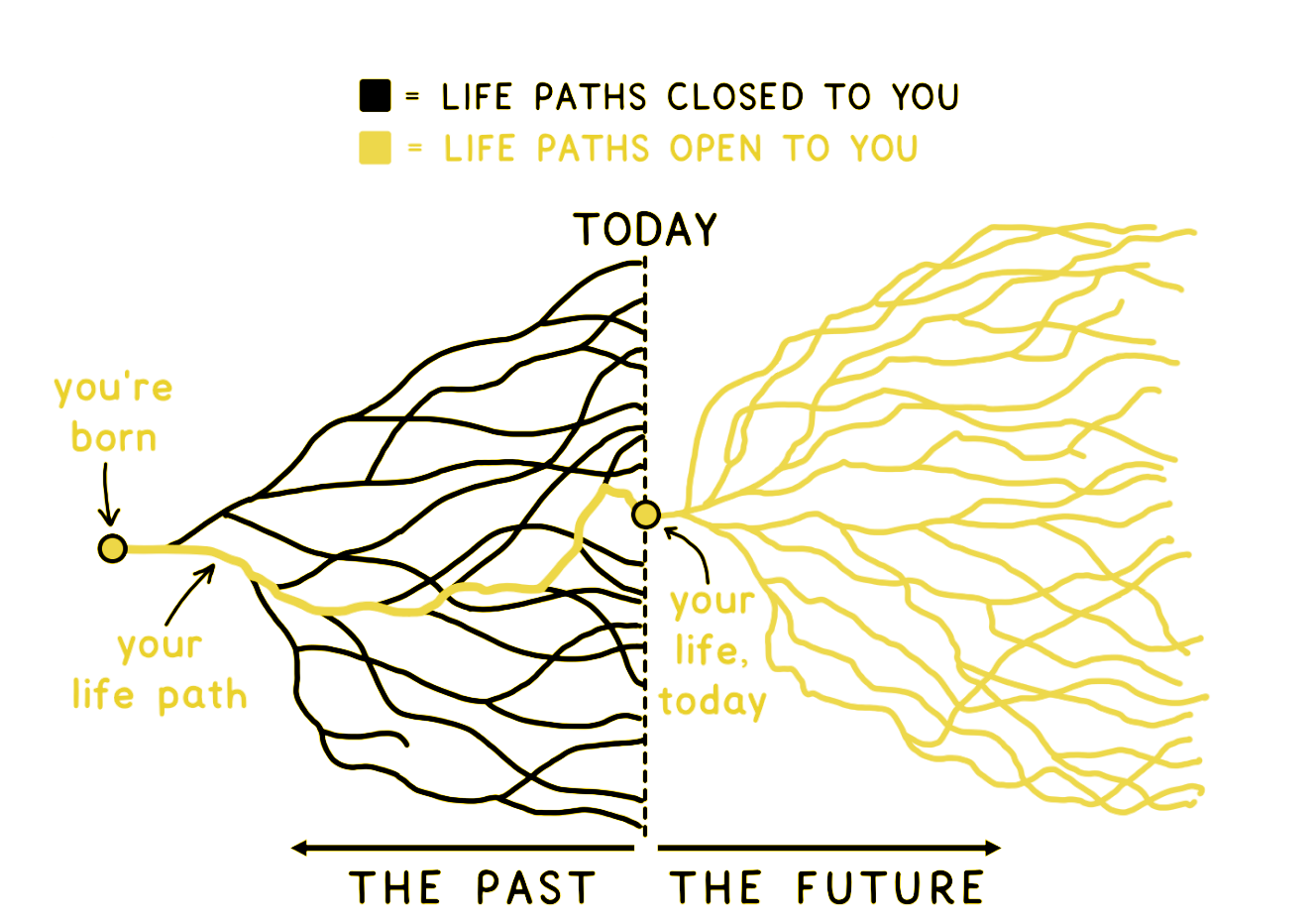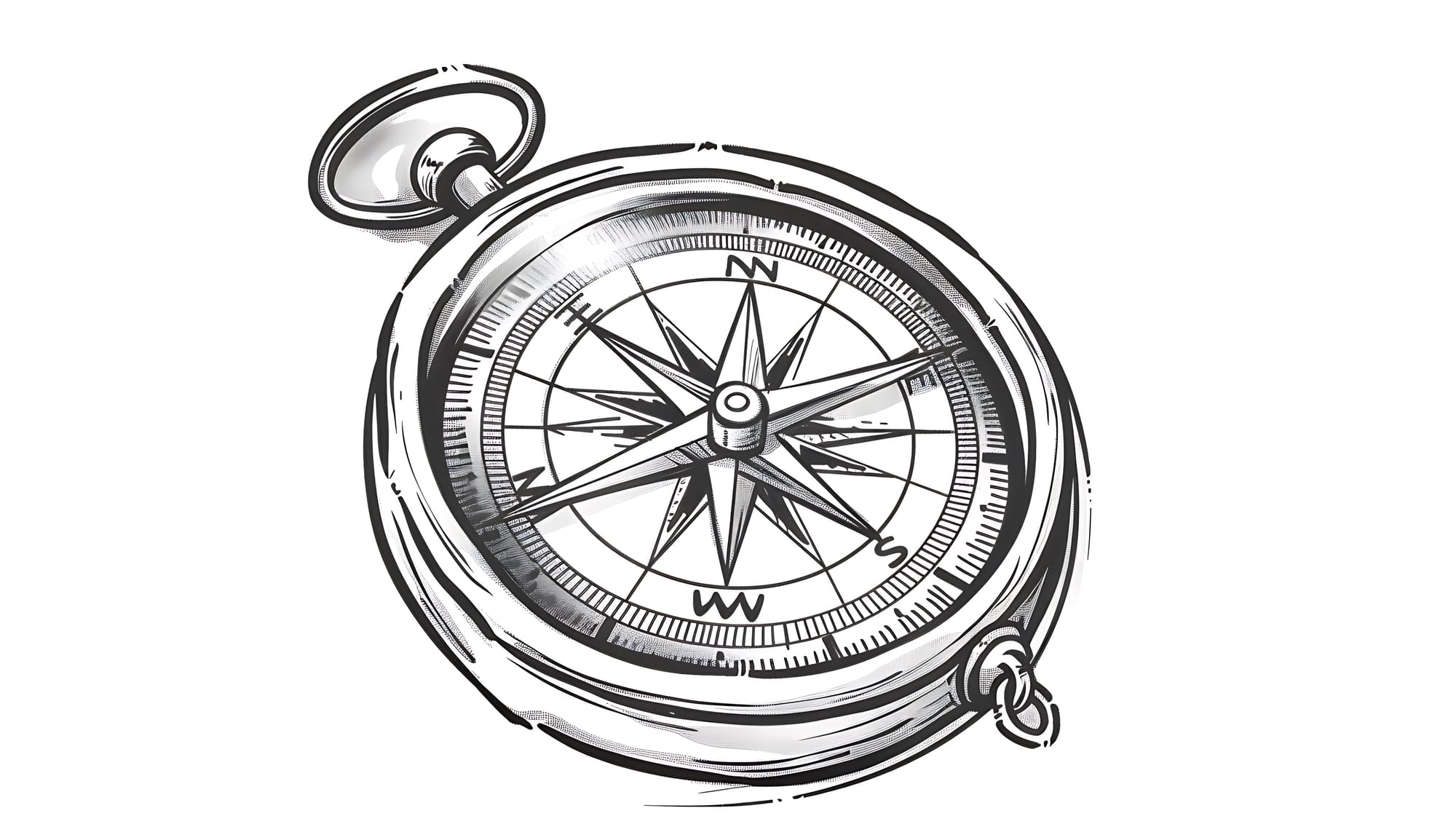What is Agilism?
Agilism Defined
Agilism is defined as "adaptive thinking for agile living in an era of increased longevity."
Agilism prepares you not only to handle but also flourish amid the uncertainties of this fast-changing world. It helps you turn the skill of adaptability into an asset, which can enable you to overcome constant change and unexpected challenges in every aspect of your life.
This approach isn't just about survival. It's also about strategically using unpredictability as a tool for success. Agilism empowers you to confidently move through uncertainty, not only finding opportunities where others see barriers, but also recognizing potential where others might fail to spot it.

This mindset helps you turn random events and uncertainty into real opportunities for growth and success.
Agilism is defined as adaptive thinking for agile living in an era of increased longevity.
Why the Need for Agilism?
While we've long recognized the need for a fresh approach in our ever-changing world, the COVID-19 pandemic really drove the point home.
This period highlighted just how fragile our traditional systems can be and how quickly our society can change. The disruptions in our career paths, businesses, and life structures during the pandemic highlighted not just the benefit, but also the sheer necessity of integrating a more adaptable, resilient approach into our daily lives.

Agilism is a vital response to the challenges of our nonlinear age. It offers fluff-free, no-nonsense tools and philosophies rooted in 21 principles that we can apply in our daily lives.
Agilism is a vital response to the challenges of our nonlinear age!
Here are the three key factors that make Agilism a vital approach in today's world:
Factor One: Rapid Change
As technology races ahead and our world becomes more connected, staying adaptable is a vital skill. Gone are the days when long-term plans and goals could be set in stone–now, constant pivoting and adjustments are an essential part of our daily lives.
Agilism encourages a flexible lifestyle that lets you quickly pivot to new opportunities and smoothly navigate your daily challenges. This approach ensures you can thrive in any situation and stay aligned with the pace of change.
Factor Two: Increased Need for Constant Pivoting
We've long accepted that the days of a single job or career are long gone. However, we still assume that reinvention is a once-in-a-lifetime occurrence.
Those days are also over. What's more, our traditional approaches to managing transitions and reinventions don't work either. The world moves too fast.
Agilism offers a dynamic approach, enabling you to adjust elements of your business, career, or personal life flexibly–without the need for an entire "makeover," (which is unrealistic).
This adaptability ensures you can stay aligned with your evolving motivations and the rapid changes in the world around you, continually rearranging aspects of your life as needed.
Factor Three: Longer Lifespans
With people living longer than ever before, the question arises: How should we use this extra time? For many of us, increasing longevity means extending our careers far beyond the traditional retirement age.
In some cases, the need to continue working may be driven by financial necessity. However, for many, the idea of spending decades in retirement doing little, especially while still in good health, is an unappealing prospect.
The old model of retiring into a quieter, less active phase of life doesn't fit with today's realities. Agilism helps us to rethink how we use this 'extra time' of life to align with a more dynamic, nonlinear lifestyle. It encourages us to stay actively engaged, regardless of age, and to remain open to new opportunities and activities. This approach ensures that every stage of life is rich with potential and adaptability.

What Are the Principles of Agilism?
Agilism is a framework based on 21 guiding principles designed to enhance adaptability and antifragility.
These principles aren't prescriptive. Instead, they act as beacons, guiding you towards adaptive thinking for agile living in your career, business, and personal life.
The framework enables rapid adaptation and swift decision making, empowering you to respond effectively to change and uncertainty, and seize opportunities with agility.
By embedding these principles into daily practices, Agilism helps you to navigate the complexities of modern life with confidence and flexibility.

Why Agilism Matters Now More Than Ever
As life becomes more unpredictable, the challenges of nonlinear life steadily become more apparent. Here's a brief look at some of the main challenges and how Agilism has become a powerful mindset.
Challenge: It can be a struggle to change fast and adapt
When change comes at us fast, it's tough to spot the right opportunities, especially when we're stuck in old ways of thinking and acting.
How Agilism can help: Agilism promotes stability and flexibility, allowing you to seize new opportunities and pivot quickly. It allows you to quickly move on from potential setbacks and overcome obstacles. This ensures you're always gaining momentum.
Challenge: Career uncertainty
The rapidly evolving job market requires constant skill upgrades and adaptability.
How Agilism can help: Agilism equips you with the strategies to make sound career choices, reduce job insecurity, and prepare you to thrive across multiple career paths and income sources over your lifetime.

Challenge: Financial instability
Traditional financial planning often assumes a steady, linear path: save steadily, then retire. But life isn't that predictable anymore.
With fluctuating and overlapping career paths and extended work lives, the old financial planning methods may not cover the gaps and shifts we now face. The traditional 'rainy day fund' no longer cuts it in the nonlinear life.
How Agilism can help: Agilism encourages a more dynamic way of managing and growing our finances. It advocates for multiple streams of income better to handle life's unpredictabilities and longer career spans. This approach ensures you're better equipped financially, no matter the economic or job market fluctuations.
Challenge: Entrepreneurial risk
Starting and growing a business has always been a high-stakes game, with a fear of failure looming large.
However, many of us still cling to outdated mentalities of starting and growing a business.
How Agilism can help: Agilism introduces flexibility into entrepreneurship by encouraging agility that allows for rapid pivoting and scaling based on real-time feedback. This reduces the risk of failure and lowers the high personal and financial costs of starting a business.
Challenge: Mental and emotional stress
The unpredictability of every aspect of life can intensify stress and anxiety.
Whether it's job insecurity, business or financial pressures, or relationship challenges, the nonlinear nature of our lives today makes it challenging to find stable ground beneath our feet.
How Agilism can help: Agilism doesn't just help you manage through difficult times. It teaches you how to thrive in uncertainty. It transforms your perspective, encouraging you to view changes and challenges as new opportunities. This shift in mindset reduces anxiety and equips you with the tools to handle whatever life throws your way with confidence and agility, ensuring you remain balanced and fulfilled in every aspect of life.

Challenge: Adjusting to unpredictable life milestones
Traditional life milestones such as achieving educational goals, advancing in a career, starting a business, reaching financial independence, planning a family, retiring, and pursuing personal development goals no longer follow predictable timelines like they did in the past.
This shift can disrupt personal plans throughout your life and those around you. Also, if you think about it, these changes will disrupt entire industries, from sectors like education, real estate, and financial planning.
How Agilism can help: Agilism promotes flexibility and personalization, encouraging you to tailor your life to better suit your changing motivations and evolving circumstances (see the next section below).
This adaptable approach allows you to align your significant life decisions–whether they're related to education, career advancement, entrepreneurship, family planning, or retirement–with your current realities and future aspirations.
Agilism helps you navigate the complexities of these milestones with a proactive and resilient mindset, ensuring your life is both managing and fulfilling.

Why Traditional Lifestyle Planning Fails in a Nonlinear World
Historically, lifestyle design has been perceived as an esoteric, aspirational pursuit that follows a fixed and prescribed linear approach.
Traditionally, we didn't take lifestyle design seriously because the three-stage linear life model seemed to already lay out our lives for us: education, career, and retirement. Significant life choices and personal happiness were frequently postponed until after years of hard work devoted to building a career or business.
In this outdated approach:
- Career-First Focus: Life decisions are centered around career progression, often at the expense of personal fulfillment.
- Deferred Happiness: Personal happiness and true interests are postponed, assuming ample time in retirement to enjoy life.
- Assumed Stability: This approach assumes that early career choices will remain relevant and supportive of our lifestyle. It overlooks the need to adapt as our circumstances change.
As the world becomes more dynamic, we need a more adaptable and flexible approach.
Agilism: A Flexible Response to Modern Lifestyle Design
Agilism offers a revolutionary response to the inadequacies of traditional lifestyle design by promoting continuous adaptability and proactive change.
Unlike the linear model, Agilism encourages a nonlinear approach to life planning–which is crucial for thriving in today's unpredictable environment.

- Continuous Reinvention: Agilism encourages you to keep growing personally and professionally, quickly adapting to whatever life throws your way.It's all about evolving as you go, not waiting for the world to prompt change.
- Prioritizing Agility: Agilism strongly emphasizes agility. This helps you seize new opportunities and overcome challenges swiftly. It's about staying nimble and ready, no matter what comes next.
- Living in the Present: Agilism supports you in chasing your passions and interests at every stage of life, not just after you've retired. It's about enjoying the journey now, not just the destination.
"To run fast, don’t take much luggage with you. Leave all your illusions behind. They are very heavy." - Yuval Noah Harari
The Benefits of Agilism
Engaging with agilism coaching can lead to a multitude of transformative outcomes, designed to enhance your ability to navigate life’s unpredictability effectively. Here are some of the key results you can expect:
- Boost Your Adaptability: You'll develop the skills to swiftly adapt to changes and challenges, turning potential obstacles into new opportunities.
- Strategic Agility: Gain the ability to not just react to changes, but to anticipate and strategically plan for future shifts, enhancing your ability to navigate life, work, and business.
- Quicker, Smarter Decision-Making: Learn to make more informed and quicker decisions, even under uncertainty, using tools and techniques that support a flexible thinking process.
- Build Resilience: Develop a stronger capacity to withstand setbacks and recover from them more swiftly, creating a resilient mindset that thrives on change.

- Take Charge of Your Life: Shift from reaction mode to a lifestyle-first approach where you control the trajectory of your personal and professional journey.
- Personal Growth and Fulfillment: Discover and refine your personal values and goals, ensuring your actions reflect your shifting motivations and the changing world around you.
- Leadership Skills: If you're in a leadership role, Agilism can sharpen your ability to lead with vision and adaptability, motivating and guiding your team or organization effectively.
- Innovative Thinking: Develop a creative and innovative thinking mindset that breaks away from traditional approaches to uncover new opportunities.
- Network and Relationship Building: Develop strategies to forge and maintain dynamic relationships that adapt to change and promote mutual growth.
- Improve Your Quality of Life: Agilism coaching aims to elevate your overall quality of life, equipping you with the skills and mindset to balance work, personal commitments, and ongoing personal development smoothly.
"Forget programming. The best skill to teach children in the 21st century is constant reinvention." - Yuval Noah Harari
Frequently Asked Questions Related to Agilism
Q: Why is Agilism more effective at managing change than traditional methods?
A: Traditional approaches to change often rely on linear, predictable transition paths: 'do this, then this, and then this." But in today's rapidly changing world, change is neither linear nor predictable, making it difficult to plan for and navigate.
Also, many traditional approaches to change assume that change is a one-time event or project, rather than a continuous process.
In contrast, Agilism emphasises the importance of developing antifragility, rapid experimentation and prototyping, balancing risk by taking a portfolio approach to life, and responding swiftly to change.
Q: Isn't Agilism just a bit too complicated and difficult to learn?
A: Not at all. Agilism is a principles-based framework that can be easily learned and developed over time, regardless of your current skillset. Anyone can follow it.
Q: In what areas can Agilism apply to my life?
A: Agilism can be applied to any area of your life at any point you face uncertainty and/or change. You can apply it to career transitions, starting a new business, even to personal relationships, and managing your finances.
Q: Can I not apply a more structured approach to change?
A: Well, you could - if you live in a predictable world. Since most things in life are defined by unpredictability, agilism can help you find the right balance between structure and flexibility so you can adapt to changing circumstances while still achieving your goals.

Q: Isn't Agilism just another buzzword?
A: Not really. Traditional approaches to reinvention, change, and transition don't work in a world that's increasingly unpredictable and moving at breakneck speed. I would therefore think of Agilism as a principles-based mindset that helps you navigate change and uncertainty in the 21st century.
Q: Aren't I too old to learn these new skills?
A: It's never too late and you're never too old. This is more about adopting a new mindset, especially if you wish to remain professionally and/or socially active - at any age.
Q: I'm already successful without Agilism. Why would I need it?
A: That's perfectly fine. Certain professions can be considered linear and predictable. But most businesses operate in the nonlinear, unpredictable world. I would not assume that your past success is any guarantee of future success. What got you here won't get you there.
Q: What if I'm not good at change?
A: Agilism is a mindset that provides a framework for handling to change and unpredictability in any aspect of your life.
Q: Is Agilism about portfolio careers and multiple revenue streams?
A: Partly, yes. Since life is increasingly nonlinear, you could consider your life as a 'portfolio' of experiences rather than the traditional linear, sequential 3-stage journey through life. Likewise, Agilism is about encouraging you to think like an investor or publisher, whereby you build a portfolio of revenues to spread your 'bets.'
On the other hand, building a portfolio is only part of Agilism, and many other components are central—such as decision-making, removing components that don't work for you, rearranging (rather than reinventing) your life, rapid experimentation and prototyping, and the ability to move on quickly from setbacks.
Undoubtedly, diversifying your revenue streams is a key aspect of Agilism. However, it's not the sole focus. Agilism is a comprehensive framework that prepares you for change and uncertainty, ensuring you're not solely reliant on one source of income.
Q: Isn't Agilism a form of systems thinking?
A: Not quite. Systems thinking helps explain complexity—but often through abstract models and feedback loops. Agilism goes one step further:
It’s uncertainty made simple.
Where systems thinking observes the system, Agilism helps you live through it.
It’s a practical, personal framework for navigating change, designing flexibility, and building sustainable momentum in real life. No jargon. No whiteboards. Just real tools for nonlinear living.

The Cost of Ignoring Agilism:
Impact on Health
- Increased Stress and Overwhelm: Not embracing an Agilism mindset might leave you feeling overwhelmed by life's unpredictability, causing stress and anxiety.
- Emotional Struggles: The inability to adapt can contribute to feelings of being stuck. This can also lead to stress, anxiety, and even depression if you start to feel your challenges feel insurmountable.
- Feeling Stagnant: Without the tools to navigate change and uncertainty, you may experience a sense of stagnation, which will affecting your mental and emotional well-being.
Impact on Wealth
- Difficulty Adapting in Professional & Business Life: Struggling to adjust to changes in the workplace or in your own business ventures can lead to missed opportunities and setbacks, negatively affecting your career progression and financial stability.
- Competitive Disadvantage: As industries evolve with technology, not keeping pace with these changes can leave you behind, impacting your ability to compete and succeed professionally.
- Limited Personal Growth: The lack of continual learning and skill development restricts your professional opportunities and financial prospects.
Impact on Relationships
- Strained Personal Connections: A non-agile approach can make it difficult to maintain healthy relationships, adapt to changing dynamics, and form new connections as life circumstances evolve.
- Reduced Exploration and Social Engagement: Inability to comfortably adapt to new environments can limit your willingness to travel and explore, reducing opportunities to meet new people and experience diverse cultures.
- Feeling Disconnected: Failing to adapt to the rapid pace of change can result in a sense of disconnection from the world around you, impacting your social interactions and relationships.
If any of this is of interest to you, please get in touch. I'd love to hear from you.